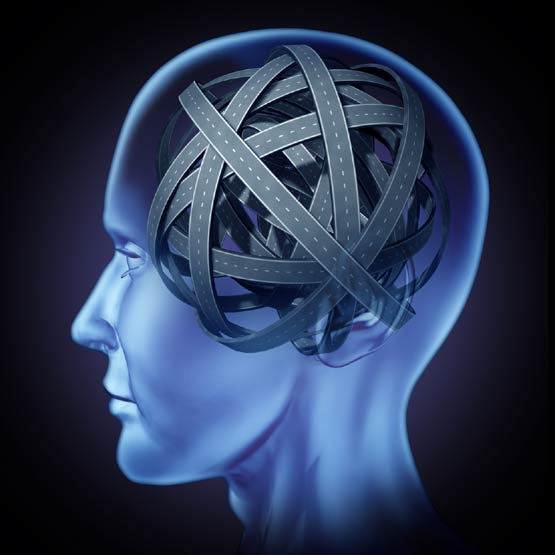
The prevailing wisdom about dementia is simple: Keep your mind active as you age to lower the risk of cognitive decline. But is the same true for Alzheimer's disease, which is the most common form of dementia? New research suggests that the answer is no. Researchers from the Mayo Clinic have found that while keeping active can protect against the symptoms of Alzheimer's, it doesn't stave off the underlying disease itself. Their new study, which was published in Neurology, the journal of the American Academy of Neurologists, finds that even when symptoms are not apparent, the biological markers of Alzheimer's seem to march forward despite intellectual enrichment.
To figure out whether mentally and physically active people are less likely to get Alzheimer's disease or just slow to show its effects, the researchers looked at longitudinal data from 393 participants between 70 and 89 years of age. Three-hundred-forty of the patients had normal cognition, and 53 had mild cognitive impairment. They separated the participants into two sets: those who were highly educated (14 years or more of education) and those who were not. Participants were given weekly questionnaires about physical and mental activities and MRI and PET scans to look for biomarkers of Alzheimer's disease.
The team looked at the effects of factors, such as age, sex and intellectual lifestyle, on participants' brains. They also looked for the APOe4 gene, which has been linked to Alzheimer's disease.
In general, mental activity reduces symptoms - that is, cognitive decline - overall for everyone. But only in people with the genetic marker APOe4 did it seem to actually inhibit the progression of the disease physically in the brain.
In people without the APOe4 gene, higher levels of academic attainment or more physical and mental activity showed the same slowing of brain metabolism, reductions in the volume of the hippocampus and worsening of amyloid plaques - clumps of proteins that can damage brain cells and trigger inflammation - than their less-active counterparts.
Things were different for the 28 percent of the group who carried the APOe4 gene. Despite being predisposed to Alzheimer's, carriers of the gene fared better when they were better-educated and stayed physically and mentally active during midlife. Highly educated participants with APOe4 developed amyloid plaques about five years later than their less educated counterparts.
That surprised Prashanthi Vemuri, the study's lead author. "People seemed to be able to compensate for the genetic risk if they had higher education," she said.
Next, Vemuri and her team want to look for other factors that could speed or slow the trajectory of Alzheimer's, which affects about 5 million Americans and is the sixth leading cause of death in the United States. "There's not much you can do about the process," Vemuri admitted. "There's a misconception that if you're mentally or physically active, you can ward off Alzheimer's disease."
Keeping your brain active may not prevent the disease itself, she said, but at least it can keep cognitive decline at bay - and enrich the quality of life with or without Alzheimer's.
Previously:
• 12/07/15: Could fear of terrorism be deadlier than terrorism itself?



 Contact The Editor
Contact The Editor
 Articles By This Author
Articles By This Author